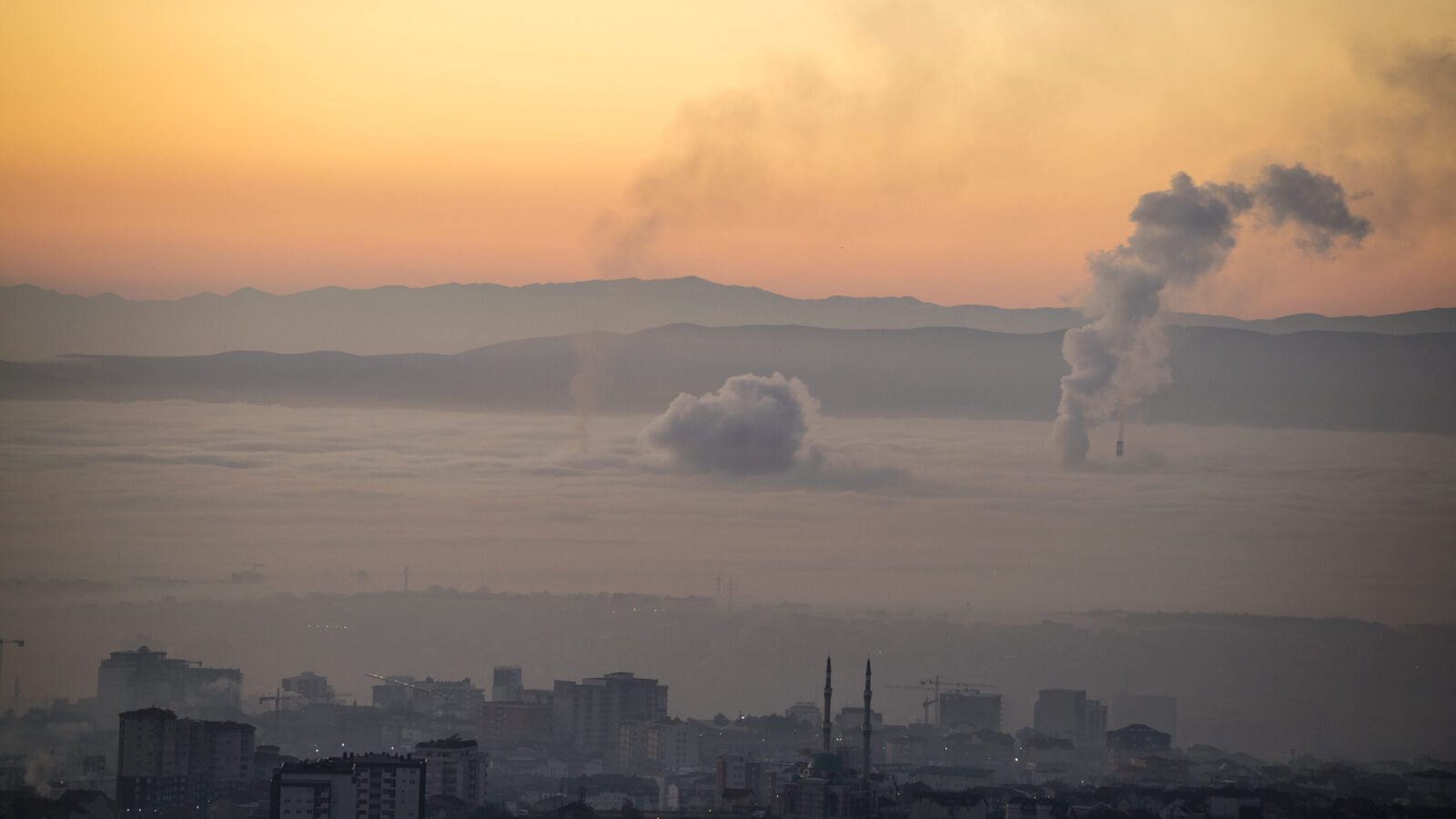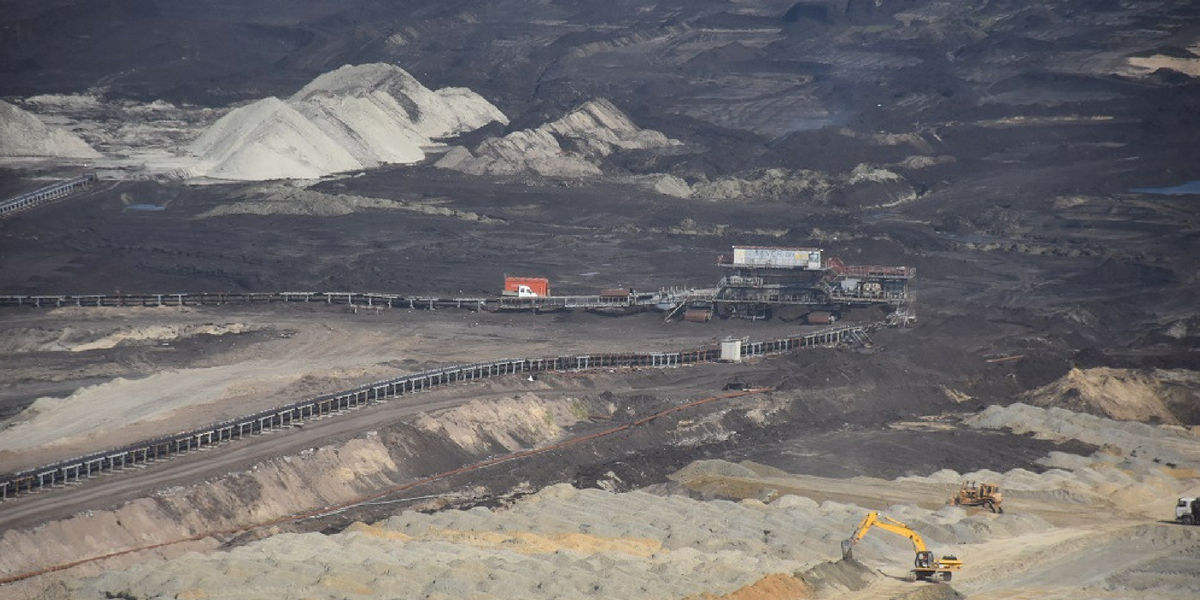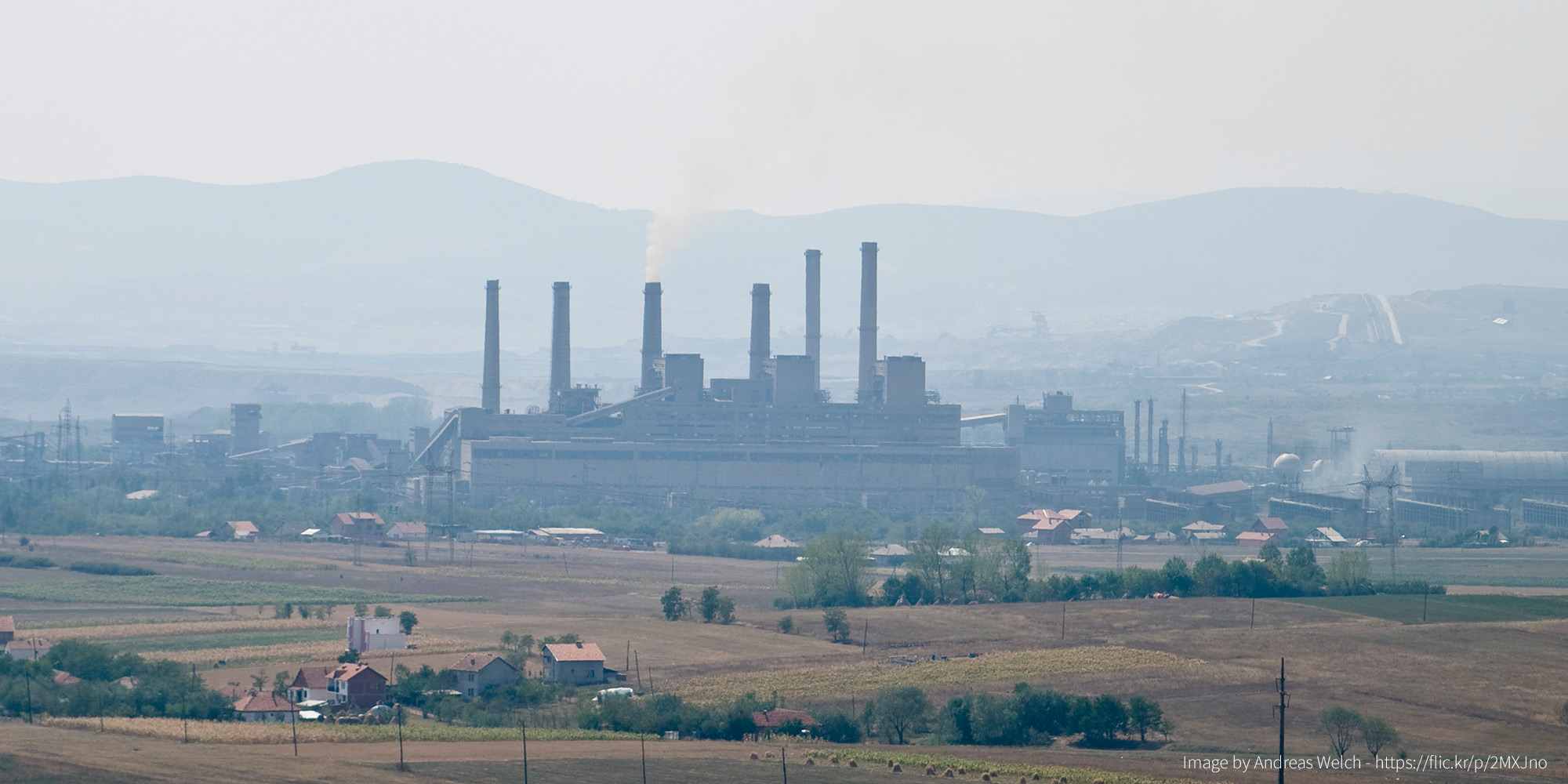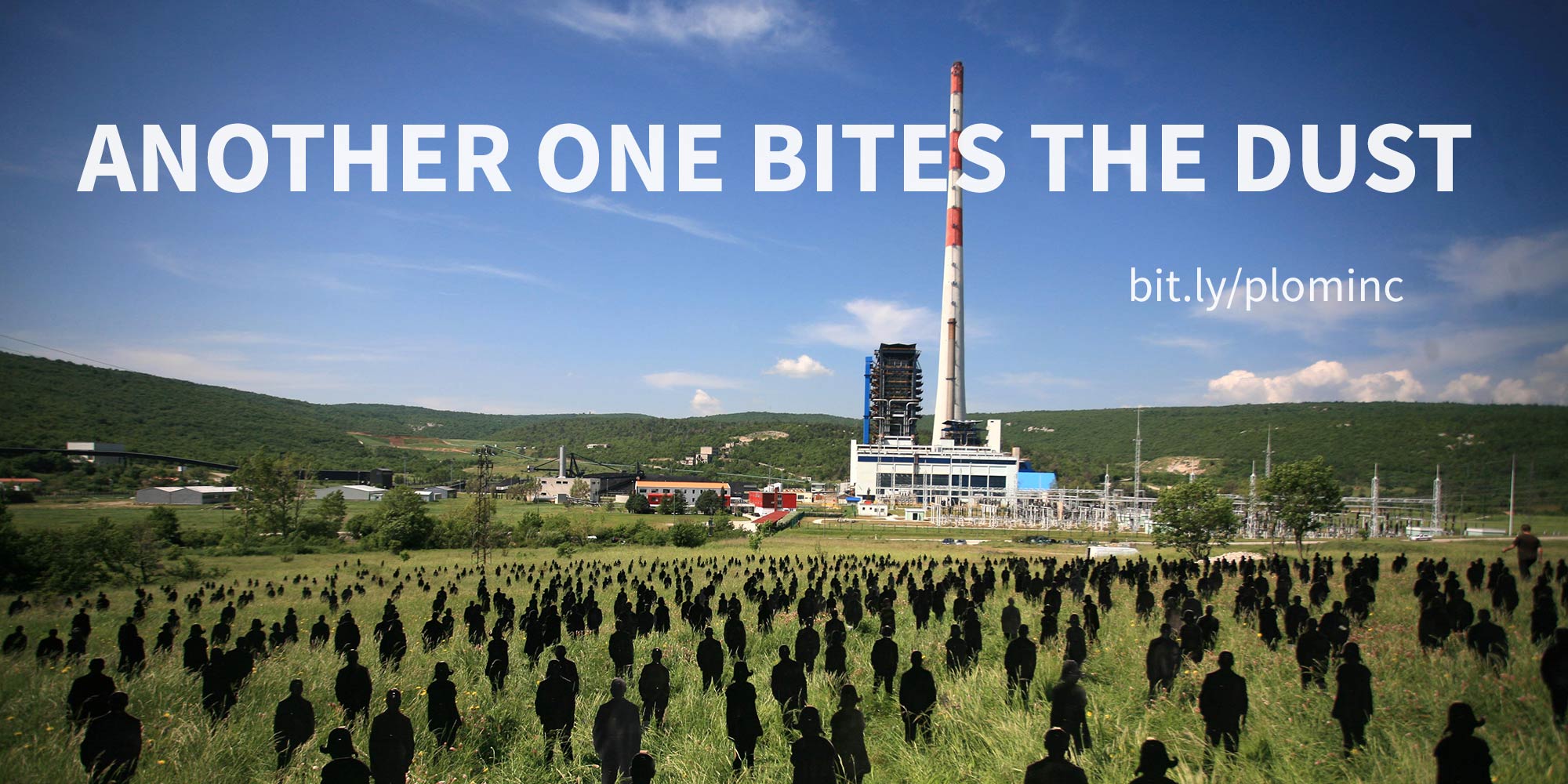Fossil fuels are fast losing their social license. It is becoming increasingly evident that countries’ continued reliance on dirty hydrocarbons escalates the climate crisis, worsens air pollution and enables war.
Long touted as a ‘bridge fuel,’ fossil gas now needs to be recognised by policymakers for the hurdle to the energy transition that it is, and multilateral development banks should urgently end support for gas projects and gas-dependent companies.
The energy transition has to be just and fast, with citizens, municipalities and workers as critical participants in the process. We are working to ensure no more public money is spent on coal, and public finance is used to accelerate this transition.
Stay informed
We provide updates in English from the Balkans and other coal regions.
IN FOCUS
Fossil gas
Fossil gas is the new coal. Although often labelled ‘natural,’ fossil gas is a major driver of the climate crisis. There is no more room for new investments in fossil gas projects if we are to avert the worst impacts of the climate crisis and set a path towards decarbonisation.
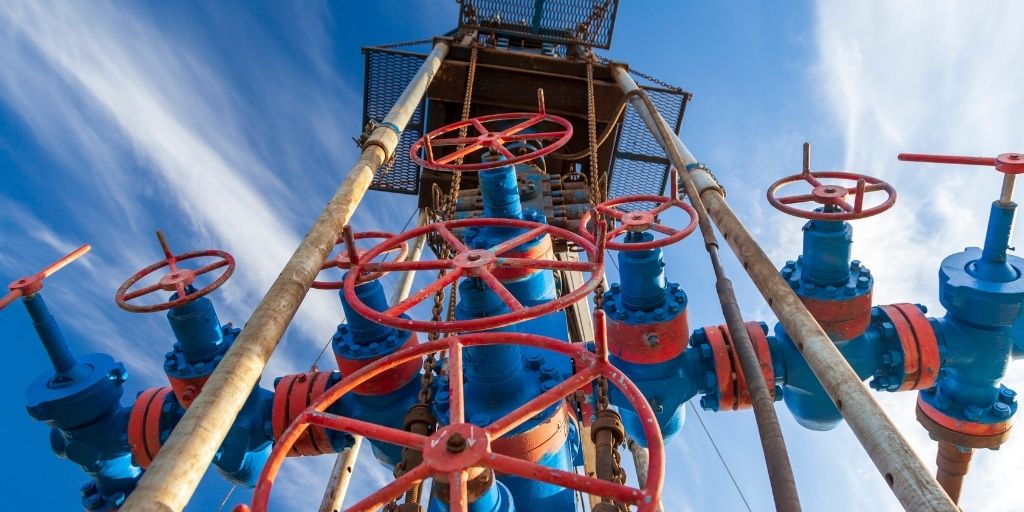
District heating
District heating and individual heating are still dominated by fossil fuels and inefficient burning of wood without regard to sustainability criteria, in combination with a low degree of energy efficiency. This has to change, since heating plays a crucial role in the transition into a clean and zero-carbon economy.
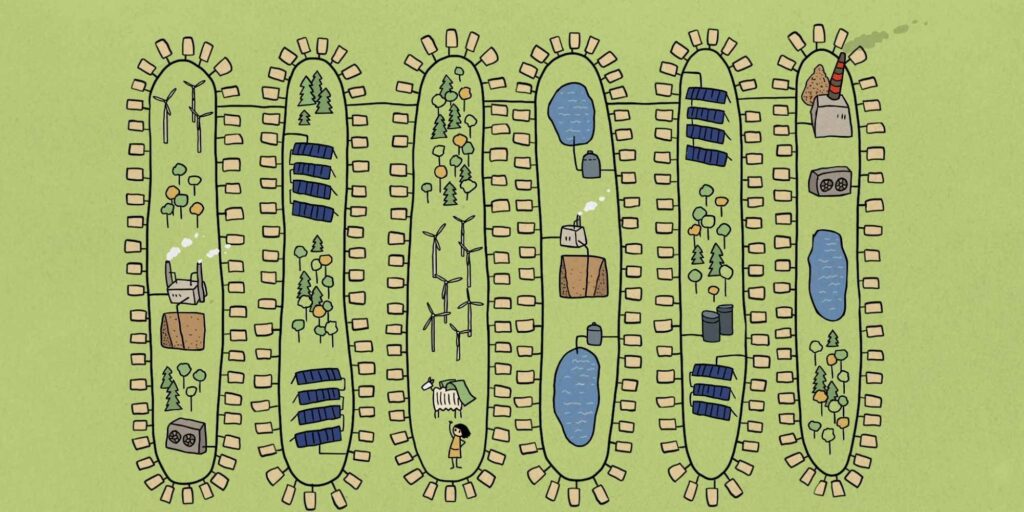
Just transition
No one should be left behind when we reconstruct our world into one driven by clean energy. Working on just transition brings all actors who believe in fair regional redevelopment to the same table: unions, industry, public administration, governments, civil society and others sharing this goal.

Documentary: Turning the Tide
Our documentary exposes, for the first time, the extent of financial support four of the world’s leading multilateral development banks (MDBs) – the World Bank, the European Investment Bank, the Asian Development Bank and the European Bank for Reconstruction and Development – have been providing to the global fossil fuels industry over the past 13 years.
Our analysis shows that since 2008, the oil, coal and gas business has been enjoying no less than EUR 81.5 billion in support from these government-owned financial institutions in the form of loans, grants, credit lines and guarantees.
Coal projects
Kostolac B3 power plant, Serbia
As of January 2024, Serbia’s state-owned utility Elektroprivreda Srbije is about to start operating a new 350 MW lignite plant at Kostolac in the country’s north-east. The project is receiving high level support and Chinese financing, but is plagued by concerns over its economics, pollution and legal irregularities.
Kosova e Re lignite power plant, Kosovo
CANCELLED: For more than a decade, successive Kosovo governments planned to build a new 500 MW lignite plant (around 450 MW net), Kosova e Re or New Kosovo. The controversial project was finally cancelled in 2020 after concession-holder ContourGlobal pulled out.
Plomin coal power plant, Croatia
CANCELLED: after five years of campaigning, plans for Plomin C were dropped in 2016. Croatian plans to more than double the capacity of the Plomin coal power plant would have resulted in increased carbon-emissions for several decades. The project’s profitability was questionable and the plans were facing local opposition and conflicting regional legislation.
Latest news
Hooked on gas: CEE governments’ climate plans prescribe fossil gas addiction
Blog entry | 16 July, 2024During much of the past 13 months – the longest streak of record-breaking global temperatures – EU governments have been revising their climate strategies. Yet, instead of increasing ambition at a time of a climate emergency, as they have committed to do, policymakers in central and eastern Europe appear keen to sustain their countries’ addiction to fossil gas.
Read moreUrgent call for central and eastern European countries to raise their NECP climate ambitions
Press release | 27 June, 2024With the deadline (30 June) for EU Member States to submit their national energy and climate plans (NECPs) fast approaching, concerns are growing that CEE countries are not showing the ambition needed to meet their 2030 climate and energy targets.
Read moreEU climate fund bankrolling dirty energy expansion
Press release | 25 June, 2024As global temperatures continue to soar and climate disasters hit the most vulnerable, the EU’s little-known Modernisation Fund is propping up unsustainable energy infrastructure.
Read moreRelated publications
A race to the top: Western Balkans 2024
Report | 16 July, 2024 | Download PDFA report by Global Energy Monitor, CEE Bankwatch Network and REScoop.eu reveals the Western Balkans have more than 23 GW of proposed utility-scale solar and wind projects—almost 70 per cent more than a year ago.
Hooked on gas: Report on the status of national energy and climate plans in central and eastern Europe
Report | 20 June, 2024 | Download PDFThis publication highlights the need for gas phase-out pathways and identifies shortcomings in the current draft NECPs of eight central and eastern European Member States.
Delays in Almaty CHP-2 gas project open new opportunities for a rethink
Briefing | 29 May, 2024 | Download PDFSupported by the EBRD, the conversion of Almaty’s coal heat and power plant CHP-2 to gas has been seriously delayed. This opens an opportunity for a rethink: Why is the EBRD continuing to support this project instead of funding a clean and potentially cheaper type of heating?
